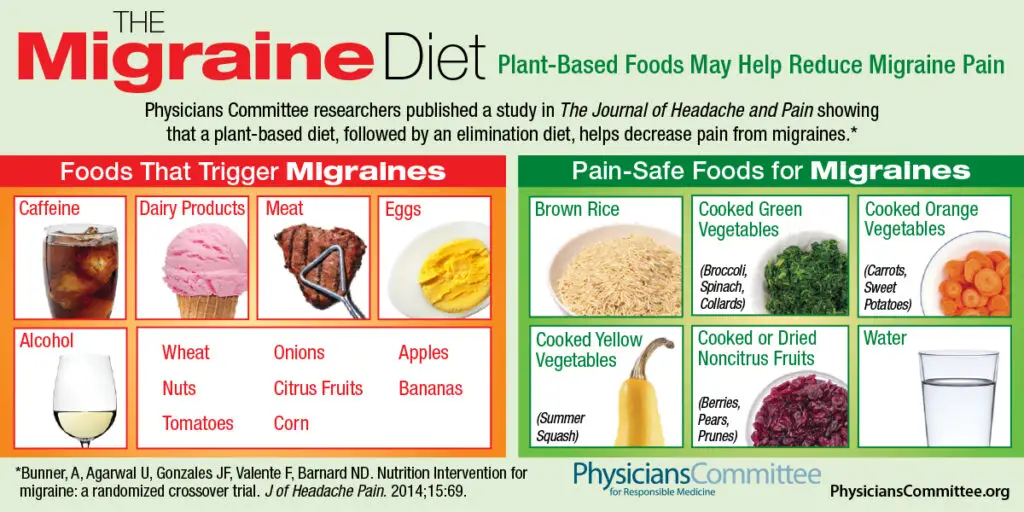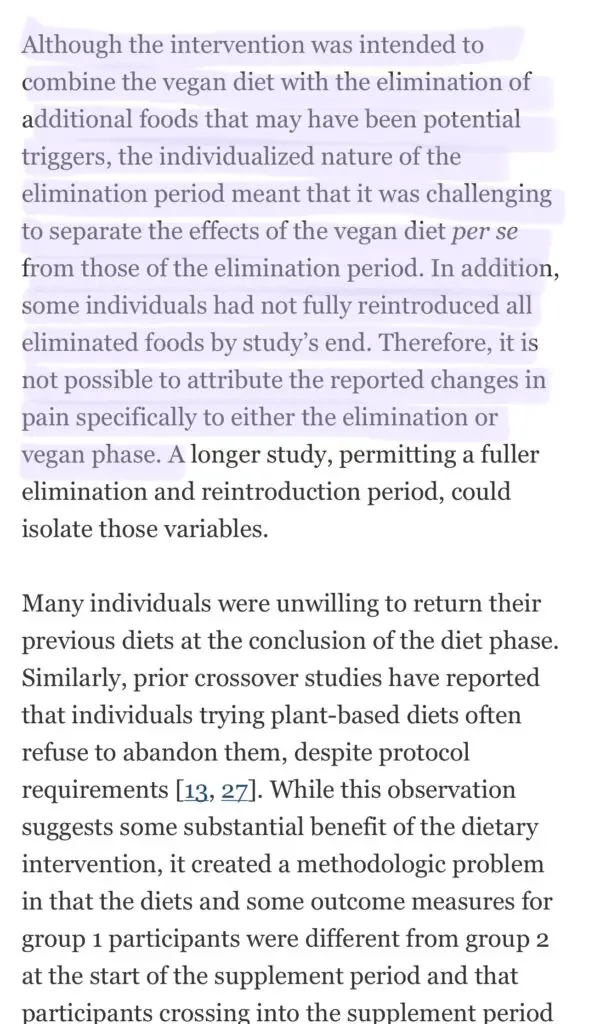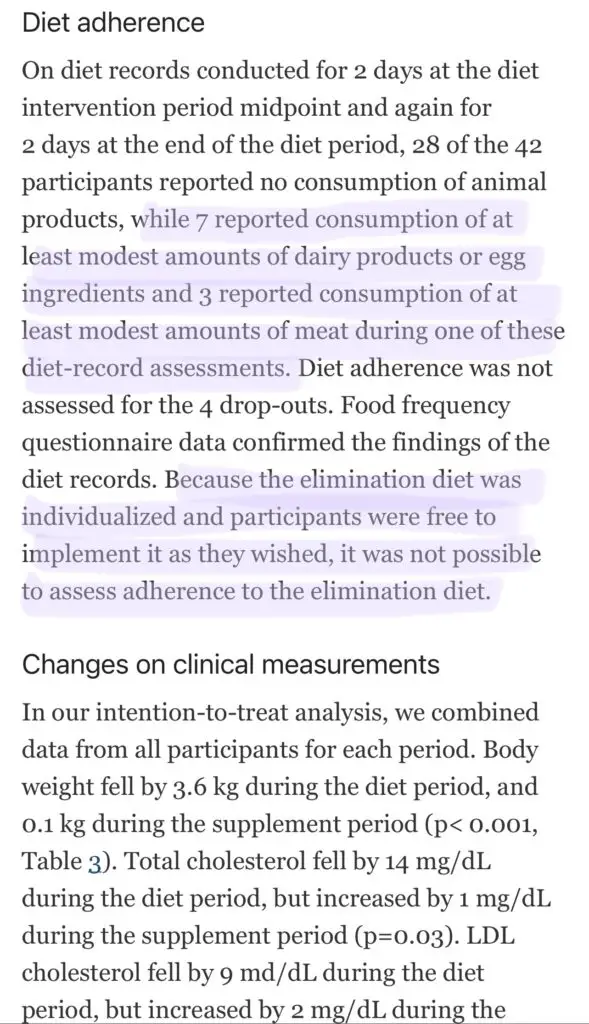Many people make the switch to a vegan diet because they want to be more mindful about their health. But did you know that some of your favorite vegan foods might actually be causing headaches and migraines? In this article, we will discuss what often causes headaches and migraines in vegans as well as how to make changes for relief. For those who are considering making a change to a vegan or plant-based diet, there is a great deal here for you, too.
As a dietitian diagnosed several years ago with chronic migraine, the topic of diet and migraine is a passion of mine and I’ve written about it often. Diet can and does help many with migraine gain control of migraine attacks. There is no one migraine diet nor approach that works for everyone. At the end of this article you can find a list of 5 other diet interventions that may be helpful.
** While Migraine Strong writes about the latest in migraine treatments, this is not medical advice. We are patient educators and all information you read should be discussed with your doctor.
What is the vegan diet?
The vegan diet is usually described by what it does not contain- animal products. When someone “goes vegan,” they forgo eggs, dairy, seafood, poultry and meats in their diet. Meals and snacks are typically a combination of grains, legumes, nuts, fruits and vegetables.
Are the vegan diet and the plant-based diet the same?
It depends on who you talk to. While veganism is strictly defined, many people think of the plant-based diet as a bit looser. Someone may consider themselves a plant-based eater if they use butter or enjoy Caesar salad dressing. Some may consider themselves a plant-based eater even if they steal a few bites of French toast from their kid’s plate or cannot resist ordering a spicy tuna roll when out to dinner. However, other strict vegans just prefer describing themselves as plant-based eaters.
What causes vegan headaches and migraine?
The answer is complicated so let’s break it down.
The root cause of migraine
Migraine is a neurological disease that is influenced by dozens of genes. The root cause of migraine is mainly genetic but is certainly impacted by our environment including controllable as well as uncontrollable triggers.
The most common triggers typically cited are stress, weather, hormones, lighting, fragrances and, of course, certain foods. As a dietitian, I love the topic of food triggers as what we choose to put in our mouth is within our control. Professionally, not much makes me happier than helping someone experience an “Ah-ha!” moment when a hidden food trigger becomes the obvious culprit for the dreaded vegan headache.
Tension-type headaches and being prone to them is also considered partially genetic as well as environmental.
To be clear, food does not cause you to be prone to headaches or to have migraine disease. Food can be a trigger regardless of the way a person eats.
Let’s take a closer look at possible reasons a person following a vegan diet may find themselves burdened with headache and/or migraine.
The main vegan headache triggers
First, it’s important to know that food triggers are unique to the individual. Some people are not triggered by foods. From years of experience in working with people living with migraine, I have found that many people have a small handful of food triggers. You should not read the below and assume you are triggered by all of these foods. Rather, there may be one or two guilty parties that you’d be better off banishing from your life for a while.
1. Highly processed proteins
People enjoying a plant-based diet usually look to the protein and fat to give the meal “staying power” and a sense of being satisfied. Vegan smoothies, shakes and protein bars are very common for breakfast and between meals. Protein powders are often added to a delicious blend of fruits and veggies. The protein not only adds to the nutritional value, it gives the liquid body and a more pleasing mouthfeel.
When certain proteins go through the process of becoming convenient, palatable powders, they naturally become high in substances considered common migraine triggers. The process of pulverizing, liquifying, concentrating, “hydrolyzing” and preparing a marketable powder often makes the proteins into natural glutamate that is similar to MSG. The vegan headache can often be explained by natural glutamate. Fortunately, most people are not sensitive to MSG and natural glutamate. However, many people prone to headaches and migraine episodes cannot tolerate highly processed proteins. The migraine brain is different than the typical brain.
Professionally, it has given me great pleasure when merely pointing out this single, common vegan headache trigger and helping someone find lasting relief. Later I will discuss some options for those of you reading this and wondering how to replace your favorite vegan protein powder.
Convenient, highly processed snack foods
Vegan snack foods are popular and plentiful in many local markets. The potential problem with them that may ruin your day with a headache is usually the source of protein. Most have nuts or hydrolyzed legumes like soy or peas so the taste and nutritional value is appealing.
2. Umami ingredients
Umami is its own category of taste. It’s often described as a meaty, savory, rich flavor. It’s glutamates like MSG and other naturally-occurring MSG-like components that seem to “wake up the flavor” of many foods and give them a boost.
Some Asian cuisines endeavor to develop rich umami by adding fermented soy products like miso or soy sauce. These foods are delicious and satisfying in many vegan meals but can trigger the dreaded headache or full migraine attack.
3. Nuts and legumes
It’s enough to make a dietitian cry. Certain wholesome, delicious, unprocessed nuts, peanuts and legumes are considered common migraine triggers.
Nuts and legumes are typically key sources of protein in the vegan diet as they are nutrient-dense, portable and convenient. Additionally, they add a great deal of texture and flavor to meals and snacks. Toasted, candied or spiced nuts are often the stars of favorite salads and pasta dishes.
4. Certain fruits and vegetables
Onions, avocados, bananas and citrus are often key parts of vegan meals and snacks. Unfortunately, they are also considered common migraine triggers. It is assumed that either the food component called tyramine is causing the problem OR the foods are causing a histamine reaction. Both histamine and tyramine are known culprits for some people with migraine and might explain vegan headache.
For more about tyramine and histamine, there is a section about it in my article about the Heal Your Headache Diet.
I am sure many who are reading this are now frustrated and wondering how you can possibly put together an enjoyable plant-based meal without potentially triggering the dreaded vegan headache or migraine. I promise to help you out, but first, I’d like to discuss an important study.
Migraines and the vegan diet – what the evidence says
In 2014, a study (1) was published by doctors from Physicians Committee for Responsible Medicine (PCRM) doctors that is often cited as supportive of a low-fat plant-based approach may be helpful to migraine treatment. I do not disagree that a plant-based approach may help some people with migraine, but there were a number of flaws in the study. While the PCRM pushes the vegan diet for migraine, the actual conclusion of the published study is murky. Further, the graphic they made on the PCRM website was irresponsible, in my opinion. To many readers, the message may be to only eat the foods in the green boxes.

It’s important to know who did the study. According to the PCRM website, this their mission: The Physicians Committee is dedicated to saving and improving human and animal lives through plant-based diets and ethical and effective scientific research.
In my opinion, the group is a force for good. They are doing a good job encouraging wholesome eating. Personally, I support an omnivorous diet but share the desire to improve public health through encouraging whole foods while shifting people away from highly processed foods. With that said, this group certainly has an agenda – promoting the vegan diet.
The study summary
Of the 42 participants enrolled, 38 had episodic migraine and 4 had chronic migraine (15 or more headache and/or migraine days per month). The dietary intervention was for 16 weeks. For the first 4 weeks the participants were to eat a strictly low-fat vegan diet. Then, they were instructed to further limit their diet of an extensive list of foods that the doctors considered common pain triggers. Some of the foods they were instructed to limit in addition to all animal products and high-fat foods were:
Wheat, rye, barley, corn, sugar, coffee, tea, nuts and seeds, soy, chickpeas, peanuts, all citrus, bananas, apples, tomatoes, peppers, potatoes, sweet potatoes, onions, garlic, chocolate and alcohol.
The participants were supposed to restrict the common migraine food trigger list for a time and then add the foods back, one at a time for 48 hours. The idea was to see if pain returned.
The study participants attended weekly classes together for the duration of the study.
The results of the study were encouraging as the participants reported an improvement in pain measurements as well other health parameters and significant weight loss. They also reported better social functioning.
Some flaws in the study
Diet studies are difficult to do as the actual dietary intake is usually self-reported. Unfortunately, self-reporting is notoriously inaccurate.
Aside from that, what I consider the biggest flaw is attributing the success to the vegan diet rather than looking at the slew of other plant-based common migraine triggers that may have been the actual problem foods. The researchers admitted that they did not assess adherence to the elimination diet. Why would they overlay the vegan diet with their list of “pain trigger foods?” Why wouldn’t they monitor adherence? What if many participant’s relief was from vegan items that the doctors consider to be possible pain-triggering foods? Why have a headline about the vegan diet being the answer when popular vegan foods like onions and nuts may have been the real food trigger?

Also, diet adherence has to have been an under-reported factor in this study. Do we truly believe that these participants who were previously omnivores followed a low-fat vegan diet without the lengthy list of delicious and satisfying foods like nuts, sugar, corn, potatoes and tomatoes? In this excerpt from the original study a significant number of participants admitted eating animal products. This study was rather… err… loosey-goosey.

And finally, I think the social component was also important as the group of people living with migraine met weekly. Getting out, being with other people with migraine brain and wanting to share success might have been a factor. Personally, I probably would have loved to be there. This was also acknowledged by the authors.
Can a plant-based diet help migraines – other evidence from the front lines
I must admit my bias. I am an omnivore who had worsening symptoms with a whole-foods vegan diet. I gave myself 24/7 migraine after buying a shiny red Vitamix and avoiding animal products. I had self-inflicted vegan headaches at a time in my life when I had terrible hormonal migraine episodes. The round-the-clock pain was non-stop for months.
Professionally, I was against the vegan diet for migraine for quite a while. What changed my mind about the vegan diet is testimonials from some people who switch from an omnivorous diet to a vegan diet and have fewer headaches and migraine attacks. I cannot just dismiss their successful experiences. However, I do have some skepticism as other significant factors may have changed. For instance, did they switch from the typical Western diet, filled with highly processed foods to a whole-foods plant-based diet. If so, I’d be more inclined to credit the shift away from junky foods to whole foods rather than the shift to only plants.
Additionally, I am skeptical about the value of avoiding all of the nutrient-dense animal products. Perhaps eliminating eggs would have been enough. Or, perhaps just avoiding dairy or skipping highly processed beef would have reduced the number and intensity of migraine while allowing a more diverse diet. When some people switch the a vegan diet, they often just spend more time preparing fresh, whole foods. Perhaps improvement in migraine can be explained by reducing highly processed, prepared foods.
While it’s anecdotal evidence and there are always many factors in play with migraine, a plant-based diet for migraine prevention is worth noting, not dismissing.
3 actions to take if you are committed to being vegan but plagued by frequent headaches and migraine
First, I encourage you to consult a headache specialist. Too often people live with untreated or undertreated migraine disease. There may be an individualized medical and/or lifestyle approach that would help you find lasting relief. If you do not have a headache specialist the American Migraine Foundation has a specialist locator to help. If one is not convenient or you want to be seen within a few days from today, we encourage you to read about our experience with Neura Health for excellent, specialized care via telehealth.
Second, consult a dietitian familiar with migraine to help you develop a nutritionally balanced approach to figuring out possible migraine triggers. At Migraine Strong, we do not recommend combining the vegan diet with any other dietary interventions without the guidance of a licensed nutrition professional. The vegan diet can be healthy but combining it with the foods listed in the study or other restrictive ways of eating can lead to nutritional deficiencies and declining health.
Below are some alternatives for you.
Quick general tips from a migraine dietitian
Most popular protein powders mentioned earlier are ones I strongly suggest you avoid. Some people in our Migraine Strong Facebook community make smoothies with commercially available protein powders made with hemp seeds and pumpkin seeds. This community also has some great ideas for convenient vegan smoothie replacements like coconut chia seed pudding and overnight oats that are quite good and not runny.
Chick peas, black beans, edamame and quinoa are good plant-based protein sources that are not considered common migraine triggers. There are more, but these are quite popular and easy to prepare.
Third, I encourage you to be open to liberalizing your diet for a short time. Just a short time. Sometimes, the way we want to eat does not suit our metabolism. Just like there are people who would benefit from eating only plants, there are people who benefit from including some wholesome animal products. If I haven’t lost you with this last point, there are 2 migraine-oriented ways of eating that you might find suitable to try for a short period to see if they help your head:
Fish Oil and Migraine-Can it Really Help?
Sugar and Migraines- A Surprising Relationship
The below is a full list of the articles about diet and migraine that I have written about in the past:
Keto Diet for Migraine – How to Get Started
Paleo Diet for Migraine- What you Need to Know
Sugar and Migraines- A Surprising Relationship
Fish Oil and Migraine – Can it Really Help
References:
(1) https://thejournalofheadacheandpain.biomedcentral.com/articles/10.1186/1129-2377-15-69


Great, well-balanced article! I was a vegetarian for many years, until I read The Omnivore’s Dilemma by Michael Pollan and realized that all my reasons for avoiding meat (personal health, environment, animal welfare) did not apply if I ate locally produced, ethically raised meat. When I added meat to my diet, my health improved and I never looked back! That was pre-migraine for me, though, do I can’t comment of the effect a vegetarian diet had in my migraines. It’s challenging to get enough protein on a vegan diet without also consuming a lot of carbs. Sometimes we can get so stuck in the dogma of a certain diet that it’s hard to be more flexible, but adding the right animal products can make a world of difference.
Thank you Daneille for this blog and I hope you have a wonderful time celebrating your birthday. I appreciate how your took the time to share excerpts from research to highlight the issues around vegan diets and migraine. Food has become so political and a trigger for most people, triggering not just a migraine. Our food options are increasingly more processed, man-made and unnatural, leading to so many chronic health issues. I hope that your article will guide people towards wellness.
There are many logical fallacies in this article, but being a migraineur, I only have the energy to mention one.
The crux of the matter is that a vegan diet is the subtraction of certain foods while an omnivore diet is the addition of those foods – not the other way around. So if you want to discuss protein powders, processed foods, umami flavors, certain produce, etc. as migraine triggers, then talk about that without framing it as a vegan issue. Omnivores consume those foods too. Those are not the foods that the addition or subtraction of define a vegan versus omnivore diet.
Why is the term “vegan headaches” used as though it were an official category? It is not. And then to critique the flaws of only one particular study within the context of this article is just disingenuous.
It is quite troubling that this lack of basic logic and critical thinking has been stamped with “medically reviewed” and “evidence-based.” It certainly makes me question the scientific validity of the other articles on this site.
Hi Christine-
I’m sorry you are disappointed in what I wrote. My goal is always to support, educate and inspire people with migraine. I chose the topic and used the term “vegan headaches” as it is a popular search term according to Google and other tools I use to help me understand topics people are interested in learning more about. My goal was/is to help people who choose a vegan diet identify possible food triggers. The foods you listed above are a “vegan issue” as some are not aware that those foods may be playing a role in their full migraine attacks or headaches. As I said in the article, they played a role in making me more ill. I was clear in stating my bias as well as my support for those who have had success.
Logically, I would delve into the article that is often used to support using a vegan diet to help migraine and point to the poor study design and the murky conclusions the researchers made themselves. I wish others would read the study and use critical thinking before using it to promote a way of eating that is not supported by the study. It may be supported by other evidence and I stated that fact.
-Danielle
At age 67 I began a near vegan diet. After a few months on the diet I began to experience increasingly frequent visual aura migraines. I have a history of migraines with visual aura starting at age fourteen, with a frequency of approximately two per year. The frequency and severity gradually decreased until the migraines largely disappeared by age 55. With the vegan diet migraines returned. The frequency went from monthly, to weekly, then every couple of days, then an episode where the left / right visual field aura started just a few minutes apart. I even had a simultaneous left / right visual aura leaving me blind for a few minutes. Then I started taking a 200 milligram per day 5-HTP supplement. After the third day of taking 5-HTP I became migraine free, which has now continued for the last fifteen months. The migraine turnaround could not have been more dramatic. I have continued my plant based diet with generally improved health.